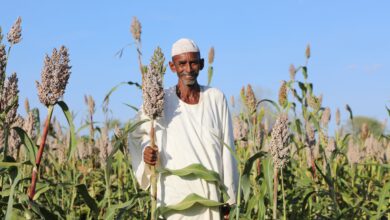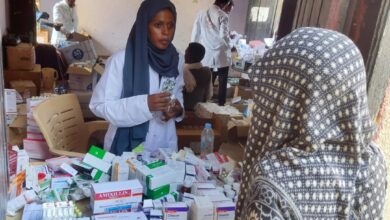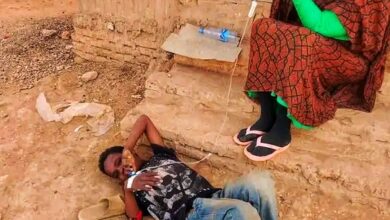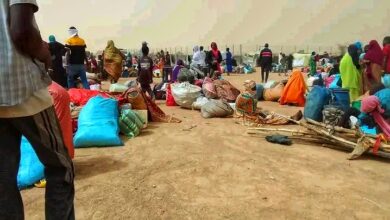Kampala: Sudanese Refugees Denounce “Lack of Transparency,” Accuse International Organization of Corruption
Sudanese Media Forum – May 24, 2025 (Sudanile)
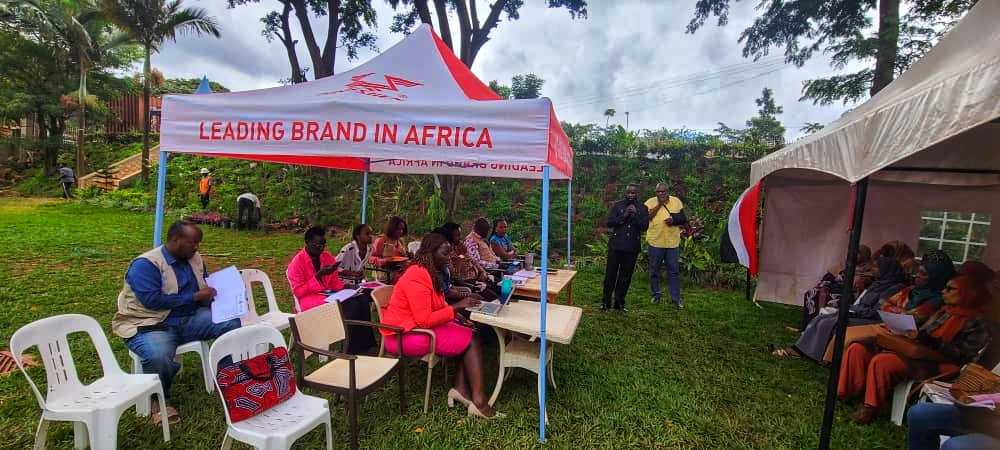
In a candid town hall discussion held Thursday at Mohamed Sebouh Park in the Mengo suburb of Kampala, Uganda, dozens of Sudanese refugees—mostly women—confronted representatives from the Ugandan Prime Minister’s Office, the UNHCR (United Nations High Commissioner for Refugees), and the Norwegian Refugee Council. Organized by the Sudanese refugee community under the banner of a “Town Hall Meeting,” the gathering aimed to highlight their worsening conditions and propose practical solutions for daily challenges.
This discussion comes amid a continued deterioration of humanitarian and living conditions for Sudanese refugees in Uganda, particularly in the capital, Kampala. Their plight reflects not only the trauma of fleeing war but also the daily struggles with healthcare, education, housing, and employment—exacerbated by glaring gaps in humanitarian coordination and response.
Multi-Faceted Suffering
From Housing to Security
The meeting revealed the growing hardship refugees face. Testimonies addressed crises in housing, healthcare, education, job scarcity, and violations of basic rights.
Sudanese lawyer Aisha Ahmed, who resides in Kampala, said refugees face “a series of violations without access to lawyers to accompany or defend them.”
She emphasized the rent crisis, stating: “Rents are extremely high, as are security deposits, and landlords rarely refund them even when tenants leave the house in good condition. Evictions often occur without notice.” She called for Sudanese to be exempted from certain rental procedures or for lawyers to be empowered to intervene swiftly.
Aisha also cited incidents of beatings, thefts, and kidnappings, urging immediate organizational response and legal protection—especially amid recurring violations, evictions, and police extortion. She proposed creating a network of Sudanese lawyers to offer legal aid.
Refugee women and mothers voiced deep concerns about security and lack of protection, especially for children and women, noting several disappearances of Sudanese individuals with no information about their whereabouts.
Others complained about difficulty accessing treatment due to language barriers, high medication costs, and lack of services for the elderly and chronically ill. The issue of hospitals withholding deceased refugees’ bodies due to unpaid fees was also raised, as authorities failed to respond.
Education-related grievances were also strong. Participants explained that high tuition fees and lack of support prevent many children from attending school—especially as many families fleeing conflict lack stable income sources.
Women and girls were another focus. Journalist and refugee Taher Ishaq reported that some landlords confiscate the ID documents of female tenants, exposing them to serious abuse. It was noted that around 80% of urban refugees are women and children, heightening vulnerability.
One refugee revealed that at least 200 mothers and children with special needs receive no services and face difficulty accessing basic tools like wheelchairs.
Refugee Naemat Yousif Mohammed expressed alarm: “A young Sudanese woman left home five days ago and hasn’t returned. We live in constant fear, and there’s no serious investigation. We need real protection.”
Organizations Respond: Partial Solutions and Uneven Support
Representatives from the UNHCR and other organizations listened to the challenges but offered no immediate, comprehensive solutions. They noted that aid is primarily directed to camp-based refugees in places like Kiryandongo, not urban refugees—citing “needs-based geographic assessments.”
Education and Family Reunification (FCA)
A representative from FCA expressed willingness to engage with refugee education concerns. He mentioned the opening of applications for scholarships in Europe and Canada (under competitive terms), and support for study in Ugandan universities. He also said the organization could assist with family reunification in countries such as Canada, the US, and Australia.
Health Interventions (AHA)
AHA’s representative said they monitor patients in government hospitals, stating that “no public hospital has the right to withhold a deceased person’s body due to unpaid bills.” The organization intervenes upon receiving reports. However, this does not apply to private hospitals.
He acknowledged reduced support for dialysis centers due to US policy changes, but assured attendees that kidney failure cases for resettlement are under serious review.
UNHCR
The UNHCR representative said services for urban refugees differ from those in camps based on needs assessments. Regarding housing disputes, she noted the availability of legal aid.
On security, she emphasized that Ugandan authorities are responsible, urging refugees to integrate socially, learn the language, avoid going out at night, carry identification, and not pay police bribes. She also denied recognition of any previous refugee representative body, saying the UNHCR is coordinating with the Prime Minister’s Office to organize new representative elections.
Resettlement and Tuition Fees (UNHCR & OPM)
The UNHCR resettlement official confirmed that “resettlement is currently unavailable” due to cuts in US funding. She warned of fraudulent rumors suggesting Canada is actively seeking refugees.
A representative from the Ugandan Prime Minister’s Office (OPM) stated that the office issues limited tuition reduction letters for specific institutions, allowing Sudanese refugees to be treated like Ugandan nationals for fees.
Allegations Against ‘GiveDirectly’: Broken Promises and Suspected Corruption
In a notable development, refugees raised serious concerns over what they called “GiveDirectly’s retreat from its promises” to provide $1,000 in cash aid to each Sudanese refugee, regardless of location.
Human rights lawyer and activist Iman Saleh criticized the organization’s operations, saying it had “crossed all boundaries and ignored the principles of fairness and transparency,” calling for a formal investigation.
She noted that GiveDirectly refuses to explain why some were deemed ineligible, merely stating: “You have no right to know.”
Refugee Amani Abdelkarim said the organization initially promised to support 4,000 Sudanese refugees registered between December 2023 and June 2024, but reality fell short: some residents of Kampala received money, Kiryandongo refugees received nothing, and others got only half—with no explanation.
Amani revealed potential corruption, alleging that the aid was tied to buying phones from the organization. The phone’s cost was deducted from the aid, and those who refused to buy were denied funds.
In response, the OPM representative announced plans to hold a joint meeting with the organization, UNHCR, and refugee representatives to verify the claims and hold the organization accountable—despite GiveDirectly’s earlier claims that its project targets only camp-based refugees.
The extended session reflected the deep frustration among Sudanese refugees, who view this as a clear breach of humanitarian promises and obligations.

